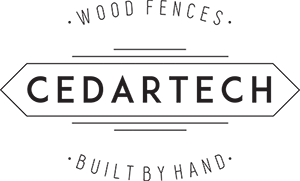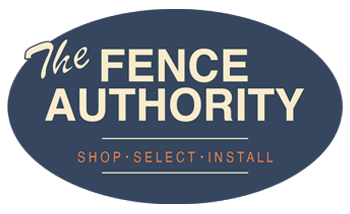Should I Get an Invisible Dog Fence or Stick with a Traditional Fence for My Dog?
If you want your dog to enjoy playing in your yard, then you’re going to need a fence. Is an invisible or electric fence the right decision, or should you be investing in a traditional fence? Sometimes, the best way to make a decision is to make a list of pros and cons. So, here are a few things to consider when deciding if an invisible fence or a traditional fence is better for containing your pet.
Invisible Dog Fences
 Invisible fences, also known as electric fences, keep your pets in your yard without a physical barrier. Instead, as the name implies, they are invisible. They make their presence known by administering a shock to your dog, who wears a special collar, if he tries to step outside bounds. Let’s go over the pros and cons of invisible fences.
Invisible fences, also known as electric fences, keep your pets in your yard without a physical barrier. Instead, as the name implies, they are invisible. They make their presence known by administering a shock to your dog, who wears a special collar, if he tries to step outside bounds. Let’s go over the pros and cons of invisible fences.
Invisible Fence PROS:
- No physical obstruction: One of the most obvious pros of an invisible fence is that it does not obstruct views on the property. This is clearly a good thing if you have sweeping views of mountains or other beautiful views in your backyard.
- Unlikely to violate building codes: Invisible fences don’t need to meet any neighborhood codes, which can win the battle of traditional fence vs. invisible fence if your neighborhood or the area you live in has strict requirements.
- Won’t disturb neighbors: Your neighbors won’t mind if you have an invisible fence, because they can’t even see it.
- There’s no escape: Pets can’t dig under or climb over invisible fences…except for when they do (see the cons list).
- Lower cost: Invisible fences can be less expensive than traditional fences.
Invisible Fence CONS:
- Requires training: Invisible fences require training for your dog, which takes time and patience.
- Controversial: Shocks are administered to teach the dog where its boundaries are. Some people see this as inhumane. This topic has been and continues to be controversial among pet owners and animal lovers.
- May make behavior worse: Using punishment as a training technique instead of positive reinforcement can have negative emotional or physical effects on your dog.
- Keeps your dog in, but doesn’t keep anyone else out: People and other animals can still get into your yard with an electric fence.
- Power source needed: Electric fences need to be connected to a power source to work.
- Not foolproof: Some dogs manage to escape from invisible fences—by slipping out of the collar, running through despite the shock, etc.
Traditional Dog Fences
Traditional fences are simply fences—real boundaries made of wood, PVC, or composite that surround your yard. In addition to the material options, there are a variety of style options for traditional fences, including paneled privacy, semi-privacy, picket, and split rail. It’s important to make sure the height and style you choose do not allow your dog an easy escape—whether because your dog can jump over the fence, slip under it, or squeeze between posts. We’ll also be exploring the pros and cons of a traditional fence.
Traditional Fence PROS:
- Property value: A traditional fence can add property value to your home.
- Endless choices: There are many styles and materials to choose from to match the style of your home if you choose a traditional fence.
- Defines your yard: Traditional fencing creates a sense of space.
- No training is required for your dog.
- No physical or emotional damage: Traditional fences have no harmful effects on a dog’s physical or emotional wellbeing.
- Keeps everyone else out: Other animals (or people) cannot get into your yard when it is fenced in.
- Keeps kids inside: You can safely protect your kids, too (as long as you have a good latch)!
- Long lifespan: Your traditional fence will last many years, especially if you work with a company that uses high quality materials and offers a good warranty.
Traditional Fence CONS:
- Neighbors may not like it: A traditional fence may cause neighborly issues if you cannot agree on a style. To be a good neighbor, you should ask before starting fence installation.
- Materials may cost more: Traditional wood, vinyl, or aluminum fencing is more costly than electric fencing.
- Dogs can jump: If the fence is too short, your dog may be able to climb or jump over the fence.
- Local restrictions: There may be neighborhood restrictions on the fence styles and heights you can install, so your options may be limited.
Both invisible fences and traditional fences have many great features, so it really just comes down to preference. Would you rather have a fence you can’t see and not interrupt your landscape? Or would you like to enhance your yard with a traditional fence and save your dog from the shock?
Ultimately, your dog’s happiness will depend not on the type of fence you get but whether or not he feels fenced-in. If your yard is designed for entertaining your dog—and if he gets plenty of exercise—he’s less likely to get frustrated that he can’t escape your yard.
Where do the experts at The Fence Authority come down on this issue? We believe that a traditional fence is the way to go. They’re beautiful, effective, and humane. We aim to help residents in the West Chester, PA area to find the perfect fences to contain their furry friends!
What kind of dog fence do you use, invisible or traditional? Are you happy with it? Still have questions before you make your choice? Take it to the comments!
To order fence parts or schedule professional installation,
call 800-431-4303 or contact us online!





1 Comment
So with the cats and dogs, I have now, I don’t let them outside very much as we don’t have a fence in our yard. I’ve been meaning to get one installed but I just keep forgetting. I’ll probably go with a traditional fence as you did mention that it would be able to keep my pets in and keep others out.